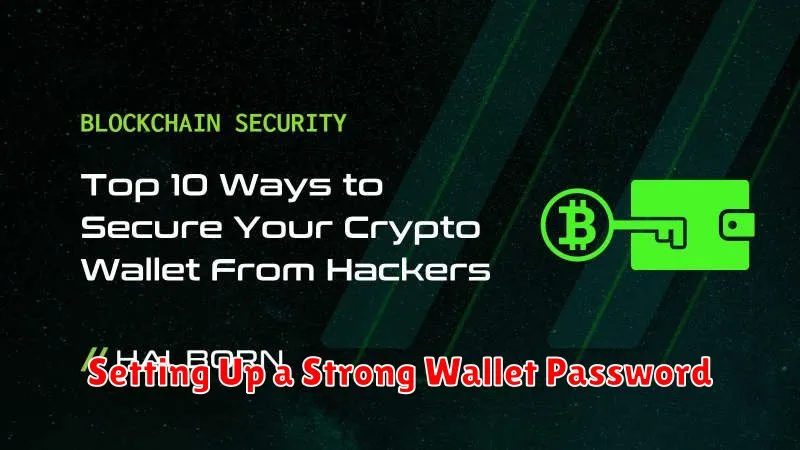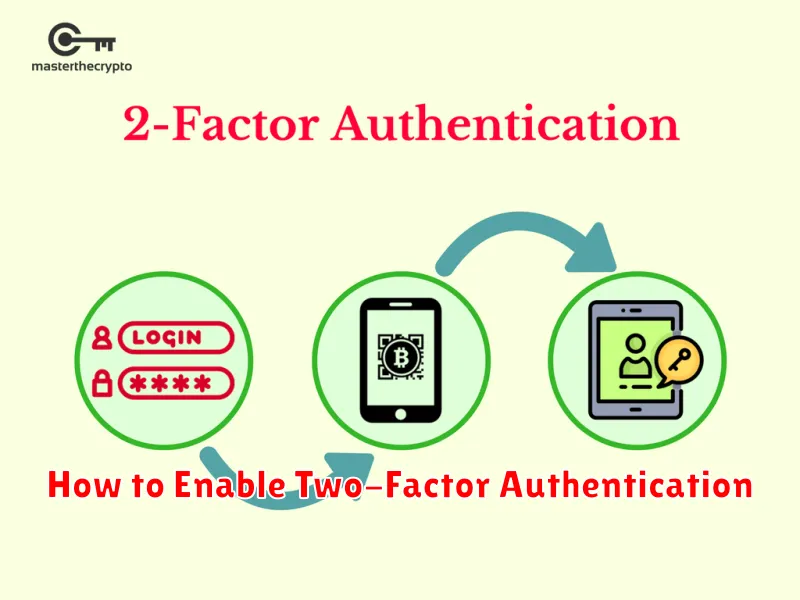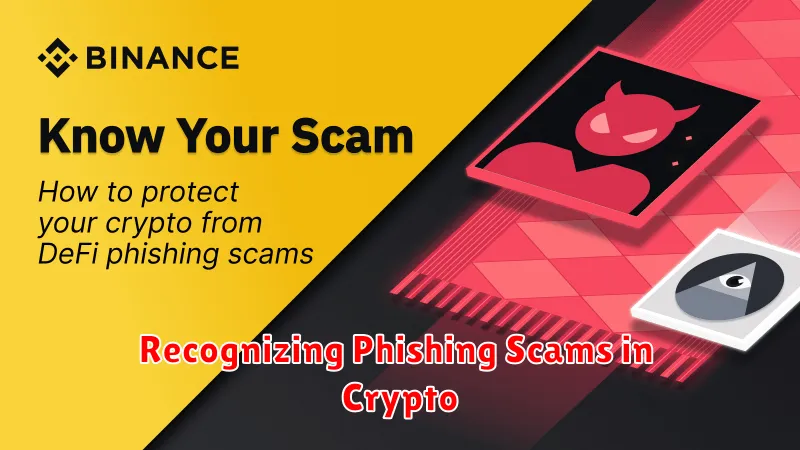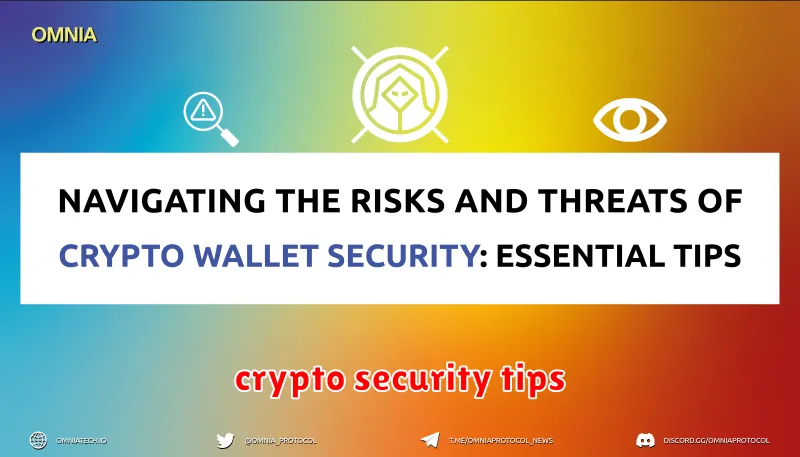So you’re diving into the exciting world of cryptocurrency? That’s awesome! But before you start investing your hard-earned cash, it’s crucial to understand the security risks involved. This beginner’s guide to crypto security will walk you through essential tips and tricks to protect your digital assets, from choosing strong passwords to understanding hardware wallets and avoiding common crypto scams. Learn how to navigate the crypto space safely and confidently, securing your investments and minimizing your risk. Let’s get started on your journey to secure crypto trading!
Why Security is Essential in Crypto
The cryptocurrency world, while offering exciting opportunities, is also rife with risks. Security isn’t just a suggestion; it’s paramount to protecting your investments and personal information. Without robust security measures, you’re vulnerable to devastating losses.
Hackers and scammers are constantly seeking ways to exploit vulnerabilities. A single lapse in security can result in the theft of your cryptocurrency, leaving you with little to no recourse. This can lead to significant financial hardship.
Beyond financial loss, compromised accounts can expose your personal data, leading to identity theft and other serious consequences. Strong security practices are crucial for maintaining control over your digital assets and protecting your overall online safety.
In essence, prioritizing security in the crypto space is not just about safeguarding your money; it’s about safeguarding your financial future and digital identity. Investing time and effort in learning and implementing effective security measures is an essential part of responsible cryptocurrency participation.
Setting Up a Strong Wallet Password

Your cryptocurrency wallet password is the single most important aspect of your digital asset security. A weak password is an open invitation to hackers. Therefore, creating a strong, unique password is paramount.
Length is key. Aim for at least 12 characters, ideally more. The longer your password, the exponentially harder it is to crack.
Complexity matters. Avoid easily guessable information like birthdays, pet names, or common words. Instead, incorporate a mix of uppercase and lowercase letters, numbers, and symbols. A good strategy is to create a passphrase – a short sentence that is easy to remember but difficult to guess.
Uniqueness is crucial. Never reuse the same password for multiple accounts, especially your cryptocurrency wallet. If one account is compromised, all others using the same password are at risk.
Password managers can help. These tools generate strong, unique passwords and securely store them, freeing you from the burden of remembering them all. Just remember to protect your password manager’s master password securely.
Consider two-factor authentication (2FA). Even with a strong password, 2FA adds an extra layer of security, making it significantly harder for unauthorized access to your wallet.
By following these guidelines, you can significantly reduce the risk of losing your cryptocurrency to malicious actors. Remember, your security is your responsibility.
How to Enable Two-Factor Authentication

Two-factor authentication (2FA) adds an extra layer of security to your crypto accounts, significantly reducing the risk of unauthorized access. It works by requiring two forms of verification – something you know (like your password) and something you have (like your phone).
Enabling 2FA varies slightly depending on the exchange or wallet, but the general steps are similar. First, navigate to your account’s security settings. Look for options like “Two-Factor Authentication,” “Security,” or “Login Verification.”
You’ll usually be presented with choices for 2FA methods, such as authenticator apps (Google Authenticator, Authy, etc.) or SMS verification. Authenticator apps are generally considered more secure.
If choosing an authenticator app, download and install it on your smartphone. The platform will provide a QR code; scan this code with your app. This will link your account to the app. You’ll then be prompted to enter a code generated by your authenticator app each time you log in.
If using SMS verification, you’ll provide your phone number. A verification code will be sent to your phone each time you log in. Remember that SMS-based 2FA is less secure than authenticator apps, as it’s vulnerable to SIM swapping attacks.
Once you’ve completed the setup process, always ensure that your 2FA remains enabled. Losing access to your 2FA method can severely complicate recovery, so keep your authenticator app backed up and your phone number updated.
Implementing 2FA is a crucial step in securing your cryptocurrency. It’s a simple yet highly effective measure to protect your digital assets from theft.
Recognizing Phishing Scams in Crypto

The cryptocurrency world is rife with scams, and phishing is a particularly prevalent threat. Phishing attacks aim to trick you into revealing your private keys, seed phrases, or other sensitive information. Be extremely vigilant!
Red flags to watch out for include unsolicited emails or messages promising unrealistic returns, requests for your private keys or seed phrase under any circumstance (legitimate exchanges or services will never ask for this), suspicious links or attachments, and grammar/spelling errors in communications.
Never click on links from unknown senders. Always double-check the sender’s address and verify the website’s legitimacy before entering any sensitive information. Legitimate cryptocurrency exchanges and platforms will have secure websites with “https” in the address bar and often have prominent security information.
Enable two-factor authentication (2FA) wherever possible. This adds an extra layer of security, making it significantly harder for phishers to access your accounts even if they obtain your password. Consider using hardware security keys for even stronger protection.
If you suspect you’ve been targeted by a phishing scam, immediately change your passwords and contact the relevant exchange or platform to report the incident. Never share details of the scam with the scammer.
Remember, reputable cryptocurrency entities will never ask for your private keys or seed phrases. If you are unsure, err on the side of caution and contact the entity directly through official channels to verify.
The Role of Cold Storage for Safety
Cold storage refers to storing your cryptocurrency offline, separate from the internet. This is a crucial security measure for beginners and experienced users alike.
Unlike hot wallets (online wallets), cold storage significantly reduces the risk of hacking. Since your crypto isn’t connected to the internet, it’s less vulnerable to phishing attacks, malware, and other online threats.
The most common form of cold storage is a hardware wallet. These devices resemble USB drives and securely store your private keys. Others utilize paper wallets, which print your private keys, though these require extra caution in handling and storage.
While cold storage isn’t entirely foolproof (physical theft remains a possibility), it represents a substantial improvement in security compared to keeping your crypto on an exchange or in an online wallet. For beginners, the added security provided by cold storage is well worth the effort of learning how to use it.
Remember, never share your private keys with anyone, regardless of your storage method. Losing your keys means losing access to your cryptocurrency.
Avoiding Fake Crypto Apps and Exchanges
The cryptocurrency world is unfortunately rife with scams. One of the biggest threats to beginners is falling prey to fake crypto apps and exchanges. These malicious platforms mimic legitimate services, often using similar logos and names to deceive unsuspecting users.
To avoid these scams, always verify the authenticity of any platform before using it. Check for reviews from reputable sources, look for official website verification (like SSL certificates), and confirm the platform’s registration with relevant authorities if required in your jurisdiction. Be wary of platforms promising unrealistically high returns or those with poor website design and unprofessional communication.
Never download apps from unofficial sources. Only download crypto apps from official app stores like Google Play or the Apple App Store. Even then, carefully read reviews and pay attention to any red flags. Be especially cautious of apps that request excessive permissions.
Research thoroughly before investing your money in any platform. A quick Google search can often reveal warning signs or expose fraudulent activity associated with a particular app or exchange. Remember, if something seems too good to be true, it probably is.
Protecting yourself from fake crypto apps and exchanges is crucial for safeguarding your crypto assets. By being vigilant and following these simple steps, you can significantly reduce your risk of becoming a victim of these scams.
Tips for Securing Your Private Keys
Your private keys are the foundation of your cryptocurrency security. Losing them means losing access to your funds – permanently. Therefore, securing them is paramount.
Never share your private keys with anyone. Legitimate services will never ask for them. Beware of phishing scams.
Use a hardware wallet. These devices store your keys offline, making them significantly more secure than software wallets or exchanges.
If using a software wallet, choose a reputable one with a strong security record and enable two-factor authentication (2FA) whenever possible.
Back up your keys, but do so securely. Don’t store backups digitally where they could be easily accessed. Consider using a physical, encrypted backup method like a metal plate or a safe.
Regularly review your security practices. Update your software, and be vigilant about potential threats.
Remember, your private keys are your responsibility. Treat them with the utmost care and diligence.
Using VPNs for Safe Crypto Transactions
Protecting your cryptocurrency investments requires a multi-layered approach, and using a VPN (Virtual Private Network) is a crucial element for enhancing your security during transactions. VPNs encrypt your internet connection, masking your IP address and location from potential threats.
This added layer of privacy is essential because it prevents others from tracking your online activities, including your cryptocurrency transactions. Malicious actors could potentially use your IP address to identify your location and even target your home network. A VPN effectively shields you from this risk by routing your traffic through a secure server in a different location.
When conducting crypto trades, a VPN helps safeguard your sensitive information from data breaches and man-in-the-middle attacks. These attacks attempt to intercept your data as it travels between you and the exchange, potentially stealing your login credentials, wallet keys, or transaction details. A robust VPN significantly reduces the risk of such attacks by encrypting your data.
However, selecting a reliable and reputable VPN provider is crucial. Look for providers with strong encryption protocols, a no-logs policy, and a proven track record of security. A poorly configured or insecure VPN can actually compromise your security, so choose wisely.
Remember, using a VPN is just one piece of the puzzle when it comes to securing your crypto transactions. Combine it with other best practices like using strong passwords, enabling two-factor authentication (2FA), and storing your cryptocurrency in secure wallets for maximum protection.

